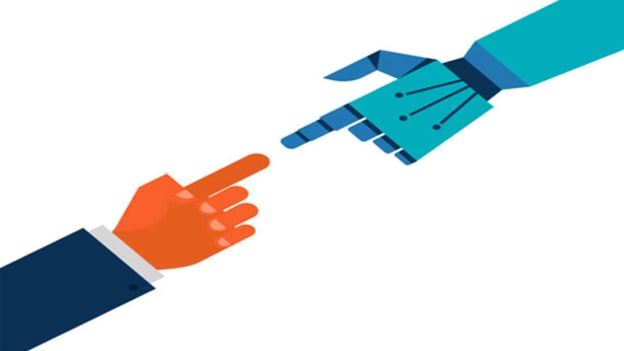2020 to be a pivotal year in AI-related employment dynamics: Study

Mark Cuban, an American entrepreneur and philanthropist said, “The world's first trillionaires are going to come from somebody who masters AI and all its, derivatives and applies it in ways we never thought of.”
Gartner recently launched a report stating the year, 2020 will be a crucial year in AI-related employment developments, as AI will become a positive job motivator. The research suggests, AI will create 2.3 million jobs and eliminates 1.8 million jobs. Svetlana Sicular, Research Vice President at Gartner shares that many notable innovations in the past have been linked with a transition period of temporary job loss, followed by recovery, then business transformation and AI will likely follow this route.”
Here are the key predictions from the report:
One in five workers engaged in non- routine tasks will rely on AI to do a job.
Craig Roth, Research Vice President at Gartner, shared in media,"Using AI to auto-generate a weekly status report or pick the top five emails in your inbox doesn't have the same wow factor as, say, curing a disease would, which is why these near-term, practical uses go unnoticed.”
Adopting technologies such as AI and robotics will enable workers to identify, optimize and automate labor-intensive and repetitive activities that will help in reducing labor costs.
In 2021, AI augmentation will generate $2.9 trillion in business value and recover 6.2 billion hours of worker productivity.
AI can take on repetitious and ordinary tasks, freeing up humans for other activities and thus saving on working hours and productivity.
Job affected by AI will vary by Industry:
The number of jobs affected by AI will differ by industry. Healthcare, Public Sector and Education will see continuously growing job demand while Manufacturing will be hit the hardest.
Mike Rolling, Research Vice-President at Gartner suggest organizations that, "Rather than having a machine replicating the steps that a human performs to reach a particular judgment, the entire decision process can be refactored to use the relative strengths and weaknesses of both machine and human to maximize value generation and redistribute decision making to increase agility."
According to a survey by Intel, out of 194 Indian organizations across sectors, nearly 75 percent of the firms anticipate benefits in business process efficiency and employee productivity with the use of AI.
Further, 64 percent of the respondents believe that this technology can empower them in revenue augmentation through better targeting of offers and improved sales processes. However, 76 percent of the companies consider that they will face a shortage of skilled personnel to harness the power of AI.
The appetite to adopt Artificial Intelligence (AI) is growing at a tremendous rate. However, the high cost of solutions, a critical shortage of skilled professionals, unclear ROI and cyber-security are emerging as the significant hindrances in adopting AI.

















